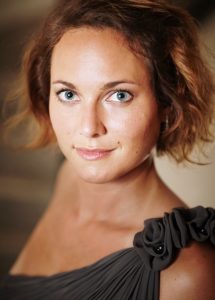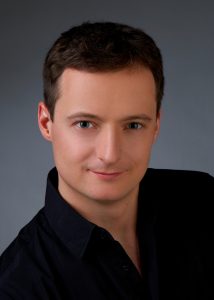The program zeitgeist | vocal is dedicated to the literature, which describes the transition of the Prima to the Seconda Prattica: the establishment of the affective monody next to the strict polyphony.
Melodiam ex tribus constare, oratione, harmonia, rithmo.
From these three things, the pure harmony (harmonia propria), the rhythm, and the text (Oratione), as Plato says, the melody arises. This was also the central demand of Monteverdi and the Florentine Camerata, who were committed to the return to ancient unanimity and the link between the content of the text and the emotions, thus laying the foundations for the development of the opera.
Monteverdi himself understood “oratio” as the lecture of the text: opera music means “singing speak” (parlar cantando), theatermusic “speaking sing” (cantar parlando). The affection contained in this lecture (the lecture follows the state of the soul), is here hierarchical about harmony and rhythm. Or in the words of the master himself:
L oratione sia padrona dell armonia e non serva.
(The lecture is the master of the musical movement and not her servant.)
With zeitgeist | vocal, the ensemble follows the musical career of two composers, who played a decisive role in our culture historical development:
Claudio Monteverdi (1567-1643), who for a long time composed in the style of the Prima Prattica (strict polyphony) and later became the leading figure for the development of the monody and thus the opera.
John Dowland (1563-1626), who independently developed the art of song out of his complex madrigals and consort compositions, inspiring musicians and composers until day.
For this endeavor, the ensemble could win two animated voices, two sensitive narrators who are able to make history come to life with their stories:
Elisabeth STURM, soprano
After a musical childhood and adolescence in Gmunden / Upper Austria, Elisabeth Sturm studied vocal pedagogy at the University of Music and Performing Arts in Vienna from 2005 to 2014 (Bachelor study with Prof. Brigitte Stradiot, Master’s degree with Prof.
Ruth Gabrielli-Kutrowatz, both degrees with distinction). At the moment she is vocally supervised by Deborah York. Engagements at the Viennese Arnold Schoenberg Choir and at the Innsbruck Festival Chorus were already influencing the soprano during her studies. At the moment she is working mainly in small ensembles (ensemble15.21, Vokalakademie Berlin) and as a soloist. Elisabeth Sturm teaches singing at the Freie Musikschule Wien and at the University of Music and Performing Arts in Vienna and is a voice artist for the New Vienna Voices.
 Klaus Dieter PAAR, tenor
Klaus Dieter PAAR, tenor
After his first musical experiences, as an alto soloist with the Wiener Sängerknaben, Klaus Dieter Paar studied from 2006 to 2014 at the conservatory-private university of Vienna with Uta Schwabe, Prof. Sebastian Vittucci, Ks. Angelika Kirchschlager, Ks. Birgid Steinberger and Carolyn Hague.
The young tenor has so far been a part of the Vienna State Opera, the Theater an der Wien, the Landestheater Linz, the Slovak National Theater Bratislava, the Vorarlberger Landestheater, the Innsbruck Festival of Early Music, Concert series in the Brahmssaal of the Wiener Musikverein…
_______________________________________________________________________
Demo – zeitgeist | vocal:
J. Dowland / Come again – 0: 00-1: 04 min
C. Monteverdi / Zefiro torna – 1: 05-2: 09 min
C. Monteverdi / pur ti miro – 2: 10-3: 59 min